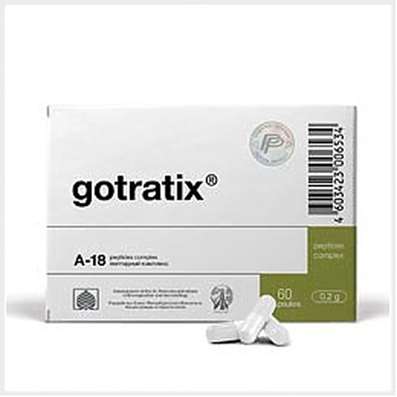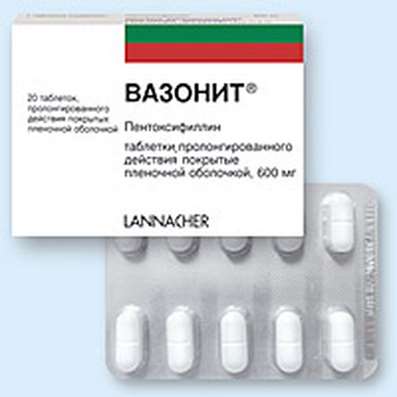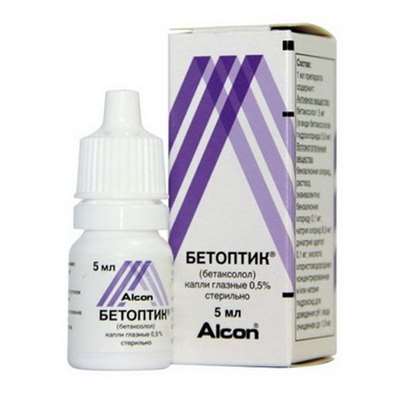Instruction for use: Misoprostol
I want this, give me price
The Latin name of the substance Misoprostol
Misoprostolum (genus. Misoprostoli)
Chemical name
(11alpha, 13E) - (+ -) - 11,16-dihydroxy-16-methyl-9-oxoprost-13-en-1-oic acid methyl ester
Gross Formula
C22H38O5
Pharmacological group:
Prostaglandins, thromboxanes, leukotrienes and their antagonists
The nosological classification (ICD-10)
K25 Stomach ulcer: Helicobacter pylori; Pain syndrome with gastric ulcer; Pain syndrome with peptic ulcer of stomach and duodenum; Inflammation of the gastric mucosa; Inflammation of the mucosa of the gastrointestinal tract; Benign ulcer of the stomach; Disease of the stomach and duodenum, associated with Helicobacter pylori; Exacerbation of gastroduodenitis against ulcer disease; Exacerbation of peptic ulcer; Exacerbation of gastric ulcer; Organic GI disease; Peptic ulcer of the stomach and duodenum; Postoperative Stomach Ulcer; Recovering ulcers; Symptomatic Stomach Ulcers; Chronic inflammatory disease of the upper gastrointestinal tract associated with Helicobacter pylori; Helicobacter pylori eradication; Erosive-ulcerative lesions of the stomach; Erosive lesions of the stomach; Erosion of the gastric mucosa; Peptic Ulcer; Stomach ulcer; Stomach ulcer; Ulcerative lesions of the stomach; Symptomatic ulcers of the stomach and duodenum
K26 Ulcer of duodenum: Pain syndrome with duodenal ulcer; Pain syndrome with peptic ulcer of stomach and duodenum; Disease of the stomach and duodenum, associated with Helicobacter pylori; Exacerbation of peptic ulcer; Exacerbation of duodenal ulcer; Peptic ulcer of the stomach and duodenum; Recurrence of duodenal ulcer; Symptomatic ulcers of the stomach and duodenum; Helicobacter pylori eradication; Erosive-ulcerative lesions of the duodenum; Erosion-ulcerative duodenal lesions associated with Helicobacter pylori; Erosive lesions of the duodenum; Peptic ulcer disease of the duodenum; Ulcerative duodenal lesions
K27 Peptic ulcer of unspecified site: Perforation in peptic ulcer; Drug-induced gastrointestinal ulcer; Medication Ulcers; Peptic ulcer of the gastrointestinal tract; Peptic ulcer with Helicobacter pylori; Peptic Ulcers; Damage to the mucosa of the gastrointestinal tract caused by the intake of NSAIDs; Symptomatic gastrointestinal ulcer; Stress ulcer; Stress ulcer of the stomach; Stress damage to the mucosa; Stress ulcers; Stress ulcer of the duodenum; Stressed stomach ulcers; Stress ulcers of the digestive tract; Erosive-ulcerative lesions of the digestive tract; Erosion of the digestive tract; Erosion of the mucosa of the upper gastrointestinal tract; Erosion of the mucosa of the gastrointestinal tract; Gastric ulcer; Ulcer medication; Peptic ulcer; Postoperative ulcer; Stress ulcer; Ulcerous lesions of the digestive tract; Acute stress ulcer of the digestive tract; Symptomatic ulcers of the gastrointestinal tract; Complications of peptic ulcer
K29.1 Other acute gastritis: Acute gastritis (erosive); Gastritis erosive; Acute gastritis
K63.3 Bowel ulcer: erosive and ulcerative bowel disease
O04 Medical abortion: Artificial abortion; Medical abortion; Abortion artificial; Vacuum aspiration; Abortion
Y45 Adverse reactions in the therapeutic use of analgesic, antipyretic and anti-inflammatory agents
CAS Code
59122-46-2
Characteristics of the substance Misoprostol
Synthetic analogue of PGE1. It consists of two diastereoisomers in a ratio of 1: 1.
Powder, which forms a viscous liquid when diluted with water. Molecular weight 382.54.
Pharmacology
Pharmacological action - antiulcer, gastroprotective, stimulating labor, uterotonizing.
Has antisecretory activity. It binds to the PGE receptors of parietal cells of the stomach, depresses the basal, stimulated and nocturnal secretion of gastric juice and hydrochloric acid, enhances the formation of bicarbonate and mucus, improves blood flow and exhibits cytoprotective effect. Reduces basal (but not stimulated by histamine) pepsin production. Increases the stability of the mucous membrane of the stomach and prevents the development of erosive and ulcerative lesions, promotes the healing of peptic ulcers. In patients taking NSAIDs, reduces the incidence of stomach and duodenal ulcers, reduces the risk of ulcer bleeding. The effect begins after 30 minutes and lasts at least 3-6 hours. At a dose of 50 μg the effect is moderate and short, 200 μg - pronounced.
Misoprostol has a weak stimulating effect on the smooth muscles of the gastrointestinal tract. It induces contraction of smooth muscle fibers of myometrium and expansion of the cervix. The ability of misoprostol to stimulate uterine contractions facilitates the opening of the cervix, raises the tone of the uterus and can provoke miscarriage. Misoprostol has no clinically significant effect on prolactin, the level of gonadotropins, thyroid-stimulating hormone, growth hormone, thyroxine, cortisol, creatinine, platelet aggregation, lung function, and cardiovascular system.
After oral administration, it is quickly and completely absorbed. Simultaneous reception with food reduces bioavailability (fatty food significantly reduces absorption, without affecting its duration). In the walls of the gastrointestinal tract and the liver is subjected to biotransformation to the pharmacologically active diesterified metabolite - misoprostol acid. Cmax of misoprostol is (6.08 ± 1.64) pg / ml, misoprostol acid - (499 ± 15) pg / ml. Tmax - (12 ± 3) min, circulates in the systemic vascular bed in a protein-related form (approximately 90%). T1 / 2 terminal is 20-40 minutes. The equilibrium concentration in plasma is reached within 2 days, cumulation is not observed. 80% of the dose is excreted by the kidneys (64-73% in the first 24 hours) and with feces (15%). If the renal function is impaired, Cmax (almost 2-fold) may increase and T1 / 2 may lengthen.
In elderly patients (over 64 years old) there is an increase in AUC.
After a single oral intake of misoprostol, its metabolite, misoprostol acid, is found in breast milk. Cmax misoprostol acid in breast milk is achieved after 1 hour and is 7.6 pg / ml with 200 mg misoprostol and 20.9 pg / ml with 600 mg misoprostol. The concentration of misoprostolic acid in breast milk is reduced to 1 pg / ml 5 hours after taking misoprostol.
Application of substance Misoprostol
Erosion of the gastrointestinal tract, peptic ulcer of the stomach and duodenum, erosive and ulcerative lesions of the gastrointestinal tract on the background of drug therapy, incl. NSAID-gastropathy (prevention and treatment).
Interruption of early pregnancy (up to 42 days amenorrhea) - only in combination with mifepristone.
Contraindications
Hypersensitivity, incl. To other prostaglandins and their analogues, breast-feeding, children and adolescents (under 18).
Restrictions on the use
Expressed violations of the liver, kidney failure, arterial hypotension, ischemic heart disease, cerebral circulation, atherosclerosis of the cerebral vessels, coronary heart disease, epilepsy, enterocolitis, diarrhea, advanced age; Endocrinopathy and endocrine system diseases, incl. Diabetes mellitus, adrenal dysfunction; Hormone-dependent tumors; anemia; When used for abortion - the use of intrauterine contraceptives (prior to use, it is necessary to remove IUD), suspicion of ectopic pregnancy.
Application in pregnancy and beastfeeding
When used as a gastroprotective agent: contraindicated in pregnancy (including when planning pregnancy). In order to exclude pregnancy in women of reproductive age before treatment, it is necessary to pre-test a serum pregnancy test, which should remain negative for 2 weeks before taking the drug. Treatment should be started no earlier than 2-3 days after the onset of menstruation. During the entire period of misoprostol, reliable methods of contraception should be used (when a woman becomes pregnant, a woman is informed of a potential threat to the fetus).
When used as uterotonizing agent can be used only for the purpose of abortion, otherwise it is contraindicated in pregnancy.
The action category for fetus by FDA is X.
The active metabolite of misoprostol, misoprostol acid, is excreted into breast milk. Although there have been no reports of the development of any adverse adverse reactions in children breastfed by the mother receiving misoprostol, caution should be exercised in the administration of misoprostol during this period.
Side effects of Misoprostol
On the part of the intestine: pain in the abdomen, dyspepsia, flatulence (2.9%), nausea and / or vomiting, diarrhea (11-40%) or constipation (1.1%).
On the part of the genitourinary system: menstrual disorders, dysmenorrhea, hypermenorrhoea, postmenopausal vaginal spotting, menorrhagia, metrorrhagia, abdominal pain associated with contractions of the myometrium.
Allergic reactions: skin rash, itching, anaphylactic reactions, angioedema.
Other: weight change, dizziness, headache (2.4%), asthenia, fatigue, hyperthermia, chills; Extremely rare in women in the pre- and post-menopausal period - seizures.
Interaction
Eating, antacids is accompanied by a decrease in the concentration of misoprostol acid in the plasma (clinically insignificant). When combined with magnesium-containing antacids, it is possible to increase the diarrhea caused by misoprostol. The long-term use of rifampicin, isoniazid, anticonvulsants, antidepressants, cimetidine, acetylsalicylic acid, indomethacin and drugs of the phenobarbital group, smoking more than 10 cigarettes a day - stimulate the metabolism of misoprostol, reducing its serum level.
Within 1 week after using misoprostol, you should stop taking acetylsalicylic acid and other NSAIDs.
Overdose
Overdose phenomena in humans are not described. Based on the results of animal toxicity studies, clinical symptoms indicative of an overdose of misoprostol may be drowsiness, inhibition, tremor, convulsions, dyspnea, abdominal pain, diarrhea, fever, palpitations, decreased blood pressure, bradycardia.
Treatment: symptomatic therapy. Hemodialysis is ineffective.
Precautions for the substance Misoprostol
When used for early termination of pregnancy, misoprostol should only be used in combination with mifepristone. In combination with mifepristone, the drug should be used only for the intended purpose and under the supervision of a doctor and only in specialized medical institutions that have the capacity to provide emergency surgical gynecological and hemotransfusion care and have appropriately trained medical personnel.
The use of the drug requires the prevention of Rh-conflict and other common activities associated with abortion. Before the appointment of misoprostol, the patient should be informed in detail about the effect and possible side effects of the drug. The patient should be observed in the conditions of the medical institution for 4-6 hours before taking the drug. During and after taking the drug, the patient should be provided with timely medical assistance in case of massive bleeding or other complications. After taking the drug in patients, as a rule, there is a slight vaginal bleeding, in some women - very long. At very early gestation, abortion is possible after taking mifepristone, but in this case it is also necessary to take misoprostol tablets to optimize the results of medical abortion. After taking misoprostol in about 80% of women, abortion occurs within 6 hours and approximately 10% of women - within 1 week. The patient needs to undergo a second examination in the same treatment facility 8-15 days after taking the drug. In case of need, an ultrasound or a level of chorionic gonadotropin in the blood serum should be performed. If there is a suspicion of incomplete abortion or the continuation of pregnancy, a comprehensive medical examination should be conducted in a timely manner. In case of incomplete abortion or continuing pregnancy, estimated 10-14 days after taking mifepristone, vacuum-aspiration is mandatory, followed by a histological examination of the aspirate.
Admission of the drug as a gastroprotector should be discontinued if diarrhea occurs (mild diarrhea is not considered a reason for withdrawal, the drug is canceled for severe diarrhea - approximately 2% of cases), itching, bleeding from the vagina, lowering blood pressure and increasing the activity of transaminases.

 Cart
Cart





